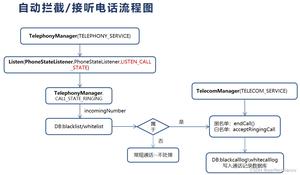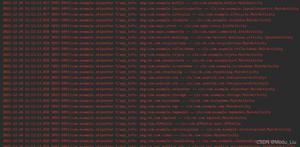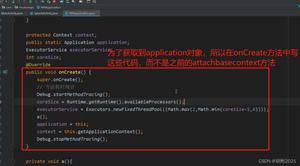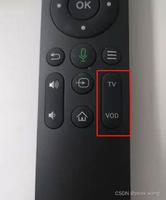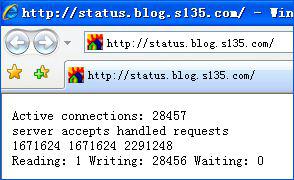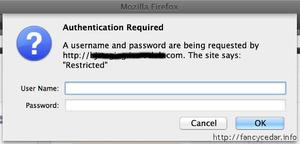Android实现卫星菜单效果
前言
最近需求中,需要实现 卫星菜单的需求,最终通过自定义View和动画属性来实现,具体功能如下:
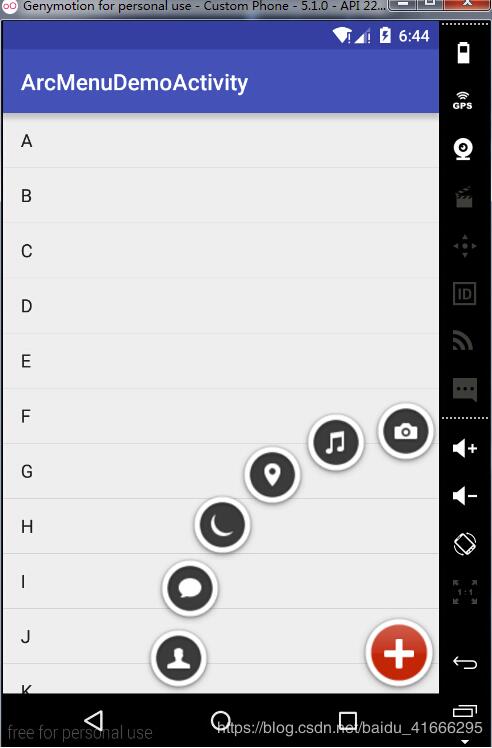
1.自定义View
import android.content.Context;
import android.util.AttributeSet;
import android.view.View;
import android.view.ViewGroup;
import android.view.animation.Animation;
import android.view.animation.AnimationSet;
import android.view.animation.AnimationUtils;
import android.view.animation.RotateAnimation;
import android.view.animation.TranslateAnimation;
import com.xinrui.headsettest.R;
/**
* 卫星菜单
*/
public class SatelliteView extends ViewGroup {
private View mBtnView;
private MenuStatus mBStatus = MenuStatus.STATUS_CLOSE;
private onSubItemClickListener onListener;
public enum MenuStatus {
STATUS_OPEN, STATUS_CLOSE
}
//子菜单点击接口
public interface onSubItemClickListener {
void onItemClick(View view, int position);
}
public void setOnSubItemClickListener(onSubItemClickListener mListener) {
this.onListener = mListener;
}
public SatelliteView(Context context) {
super(context);
// this(context, null);
}
public SatelliteView(Context context, AttributeSet attrs) {
super(context, attrs);
// this(context, attrs, 0);
}
public SatelliteView(Context context, AttributeSet attrs, int defStyleAttr) {
super(context, attrs, defStyleAttr);
}
@Override
protected void onMeasure(int widthMeasureSpec, int heightMeasureSpec) {
int count = getChildCount();
for (int i = 0; i < count; i++) {
measureChild(getChildAt(i), widthMeasureSpec, heightMeasureSpec);
}
super.onMeasure(widthMeasureSpec, heightMeasureSpec);
}
//添加布局,就是所要显示的控件View
@Override
protected void onLayout(boolean changed, int l, int t, int r, int b) {
if (changed) {
//主菜单按钮
onMainButton();
//子菜单按钮
onSubItemButton();
}
}
//获取主菜单按钮
private void onMainButton() {
mBtnView = getChildAt(0);
mBtnView.setOnClickListener(new OnClickListener() {
@Override
public void onClick(View v) {
//主菜单动画旋转动画
Animation rotateAnim = AnimationUtils.loadAnimation(getContext(), R.anim.satellite_anim);
mBtnView.startAnimation(rotateAnim);
//子菜单动画
subItemAnim();
}
});
int l, t, r = 0, b = 0;
int mWidth = mBtnView.getMeasuredWidth();
int mHeight = mBtnView.getMeasuredHeight();
l = getMeasuredWidth() - mWidth;
t = getMeasuredHeight() - mHeight;
mBtnView.layout(l, t, getMeasuredWidth(), getMeasuredHeight());
}
//获取子菜单按钮
private void onSubItemButton() {
int count = getChildCount();
for (int i = 0; i < count - 1; i++) {
View childView = getChildAt(i + 1);
//开始时不呈现子菜单
childView.setVisibility(View.GONE);
int radius = 350;
int cl, ct, cr, cb;
cr = (int) (radius * Math.sin(Math.PI / 2 / (count - 2) * i));
cb = (int) (radius * Math.cos(Math.PI / 2 / (count - 2) * i));
int cWidth = childView.getMeasuredWidth();
int cHeight = childView.getMeasuredHeight();
cl = getMeasuredWidth() - cWidth - cr;
ct = getMeasuredHeight() - cHeight - cb;
//layout(l,t,r,b);前两参数决定位置,后两参数决定大小
//参数(1,t)为View控件的左上角坐标
// (r-l,b-t)为View控件大小,r-l为控件宽度,b-t为控件高度
childView.layout(cl, ct, getMeasuredWidth() - cr, getMeasuredHeight() - cb);
}
}
//子菜单散开回笼动画
public void subItemAnim() {
int count = getChildCount();
for (int i = 0; i < count - 1; i++) {
final View childView = getChildAt(i + 1);
//点击主菜单后,子菜单就立刻呈现,否则后面的动画无法完成
childView.setVisibility(VISIBLE);
int radius = 350;
int l, t, r, d;
r = (int) (radius * Math.sin(Math.PI / 2 / (count - 2) * i));
d = (int) (radius * Math.cos(Math.PI / 2 / (count - 2) * i));
// int cWidth = cView.getMeasuredWidth();
// int cHeight = cView.getMeasuredHeight();
//
// l = getMeasuredWidth() - cWidth - r;
// t = getMeasuredHeight() - cHeight - d;
AnimationSet mAnimationSet = new AnimationSet(true);
Animation mTranAnimation = null;
if (mBStatus == MenuStatus.STATUS_CLOSE) {
//散开动画
mTranAnimation = new TranslateAnimation(r, 0, d, 0);
childView.setClickable(true);
childView.setFocusable(true);
} else {
//回笼动画
mTranAnimation = new TranslateAnimation(0, r, 0, d);
childView.setClickable(false);
childView.setFocusable(false);
}
mTranAnimation.setDuration(300);
// tranAnim.setFillAfter(true); //让最后一帧的动画不消失
mTranAnimation.setStartOffset(100 * i / count);
mTranAnimation.setAnimationListener(new Animation.AnimationListener() {
@Override
public void onAnimationStart(Animation animation) {
}
@Override
public void onAnimationEnd(Animation animation) {
if (mBStatus == MenuStatus.STATUS_CLOSE) {
childView.setVisibility(GONE);
}
}
@Override
public void onAnimationRepeat(Animation animation) {
}
});
Animation rotateAnim = new RotateAnimation(
0, 360, Animation.RELATIVE_TO_SELF, 0.5f, Animation.RELATIVE_TO_SELF, 0.5f);
rotateAnim.setDuration(300);
// rotateAnim.setFillAfter(false);
mAnimationSet.addAnimation(rotateAnim);
mAnimationSet.addAnimation(mTranAnimation);
childView.startAnimation(mAnimationSet);
//散开后子菜单的点击监听事件
final int pos = i + 1;
childView.setOnClickListener(new OnClickListener() {
@Override
public void onClick(View v) {
if (onListener != null) {
onListener.onItemClick(childView, pos);
}
//散开后点击子菜单动画
subItemClickAnim(pos - 1);
changStatus();
}
});
}
changStatus();
}
//监听子菜单状态改变
private void changStatus() {
mBStatus = (mBStatus == MenuStatus.STATUS_CLOSE ? MenuStatus.STATUS_OPEN : MenuStatus.STATUS_CLOSE);
}
//散开后点击子菜单动画
private void subItemClickAnim(int pos) {
int count = getChildCount();
for (int i = 0;i<count-1;i++) {
View mChildView = getChildAt(i+1);
if(i == pos) {
//变大,变透明
mChildView.startAnimation(toBig());
}
else {
//变小,变透明
mChildView.startAnimation(toSmall());
}
mChildView.setClickable(false);
mChildView.setFocusable(false);
}
}
//变大,变透明
private Animation toBig(){
Animation big = AnimationUtils.loadAnimation(getContext(), R.anim.bigalpha);
return big;
}
//变小,变透明
private Animation toSmall(){
Animation small = AnimationUtils.loadAnimation(getContext(),R.anim.smallalpha);
return small;
}
//给ListView调用
public boolean isOpen() {
return mBStatus == MenuStatus.STATUS_OPEN;
}
}
2.SatelliteActivity
import android.app.Activity;
import android.os.Bundle;
import android.view.View;
import android.widget.AbsListView;
import android.widget.ArrayAdapter;
import android.widget.ListView;
import android.widget.Toast;
import com.xinrui.headsettest.arc.SatelliteView;
import java.util.ArrayList;
import java.util.List;
public class SatelliteActivity extends Activity {
private SatelliteView mSatelliteView;
private ListView mListView;
private List<String> mData;
private ArrayAdapter mAdapter;
@Override
protected void onCreate(Bundle savedInstanceState) {
super.onCreate(savedInstanceState);
setContentView(R.layout.satellite_layout);
mSatelliteView = (SatelliteView) findViewById(R.id.view_arc);
mSatelliteView.setOnSubItemClickListener(new SatelliteView.onSubItemClickListener() {
@Override
public void onItemClick(View view, int position) {
Toast.makeText(SatelliteActivity.this, "position" + position, Toast.LENGTH_SHORT).show();
}
});
initListView();
}
private void initListView() {
mListView = (ListView) findViewById(R.id.listview);
mData = new ArrayList<String>();
for (int i = 'A'; i <= 'z'; i++) {
mData.add((char) i + "");
}
mAdapter = new ArrayAdapter<String>(
SatelliteActivity.this, android.R.layout.simple_list_item_1, mData);
mListView.setAdapter(mAdapter);
mListView.setOnScrollListener(new AbsListView.OnScrollListener() {
@Override
public void onScrollStateChanged(AbsListView view, int scrollState) {
}
@Override
public void onScroll(AbsListView view, int firstVisibleItem, int visibleItemCount, int totalItemCount) {
if (mSatelliteView.isOpen()) {
mSatelliteView.subItemAnim();
}
}
});
}
}
3.satellite_layout.xml
<?xml version="1.0" encoding="utf-8"?>
<RelativeLayout xmlns:android="http://schemas.android.com/apk/res/android"
android:layout_width="match_parent"
android:layout_height="match_parent">
<ListView
android:id="@+id/listview"
android:layout_width="match_parent"
android:layout_height="match_parent"/>
<com.xinrui.headsettest.arc.SatelliteView
android:id="@+id/view_arc"
android:layout_width="match_parent"
android:layout_height="match_parent">
<RelativeLayout
android:layout_width="wrap_content"
android:layout_height="wrap_content">
<ImageView
android:layout_width="wrap_content"
android:layout_height="wrap_content"
android:layout_centerInParent="true"
android:src="@drawable/menu" />
</RelativeLayout>
<ImageView
android:layout_width="wrap_content"
android:layout_height="wrap_content"
android:src="@drawable/camera" />
<ImageView
android:layout_width="wrap_content"
android:layout_height="wrap_content"
android:src="@drawable/chat" />
<ImageView
android:layout_width="wrap_content"
android:layout_height="wrap_content"
android:src="@drawable/contacts" />
<ImageView
android:layout_width="wrap_content"
android:layout_height="wrap_content"
android:src="@drawable/music" />
<ImageView
android:layout_width="wrap_content"
android:layout_height="wrap_content"
android:src="@drawable/moon" />
<ImageView
android:layout_width="wrap_content"
android:layout_height="wrap_content"
android:src="@drawable/location" />
</com.xinrui.headsettest.arc.SatelliteView>
</RelativeLayout>
4.anim动画 在res 新建anim文件夹
satellite_anim.xml
<?xml version="1.0" encoding="utf-8"?>
<set xmlns:android="http://schemas.android.com/apk/res/android">
<rotate
android:duration="300"
android:fromDegrees="0"
android:toDegrees="360"
android:pivotX="50%"
android:pivotY="50%"/>
</set>
bigalpha.xml
<!--android:fillAfter="true"得加,取动画结束后的最后一帧-->
<set xmlns:android="http://schemas.android.com/apk/res/android"
android:fillAfter="true">
<alpha
android:duration="200"
android:fromAlpha="1"
android:toAlpha="0"/>
<scale
android:duration="200"
android:fromXScale="1"
android:fromYScale="1"
android:toXScale="3"
android:toYScale="3"
android:pivotX="50%"
android:pivotY="50%" />
</set>
smallalpha.xml
<!--android:fillAfter="true"得加,取动画结束后的最后一帧-->
<set xmlns:android="http://schemas.android.com/apk/res/android"
android:fillAfter="true">
<alpha
android:duration="200"
android:fromAlpha="1"
android:toAlpha="0"/>
<scale
android:duration="200"
android:fromXScale="1"
android:fromYScale="1"
android:toXScale="0"
android:toYScale="0"
android:pivotX="50%"
android:pivotY="50%" />
</set>
以上就是本文的全部内容,希望对大家的学习有所帮助,也希望大家多多支持。
以上是 Android实现卫星菜单效果 的全部内容, 来源链接: utcz.com/p/242905.html


